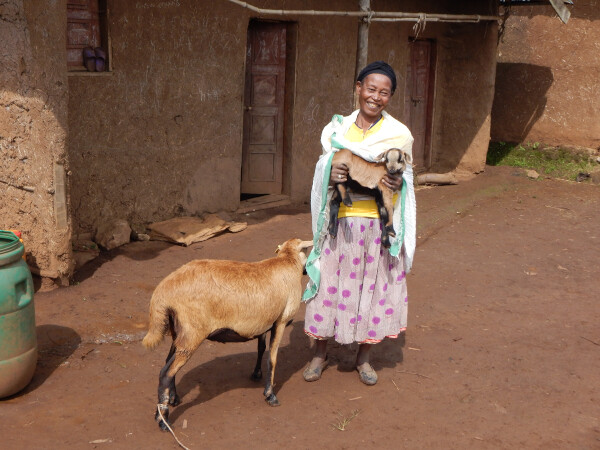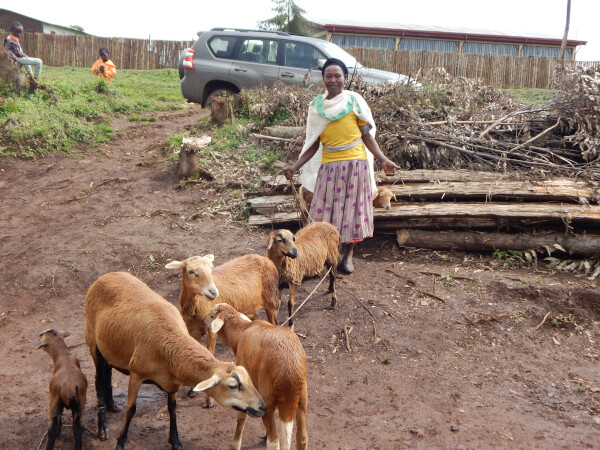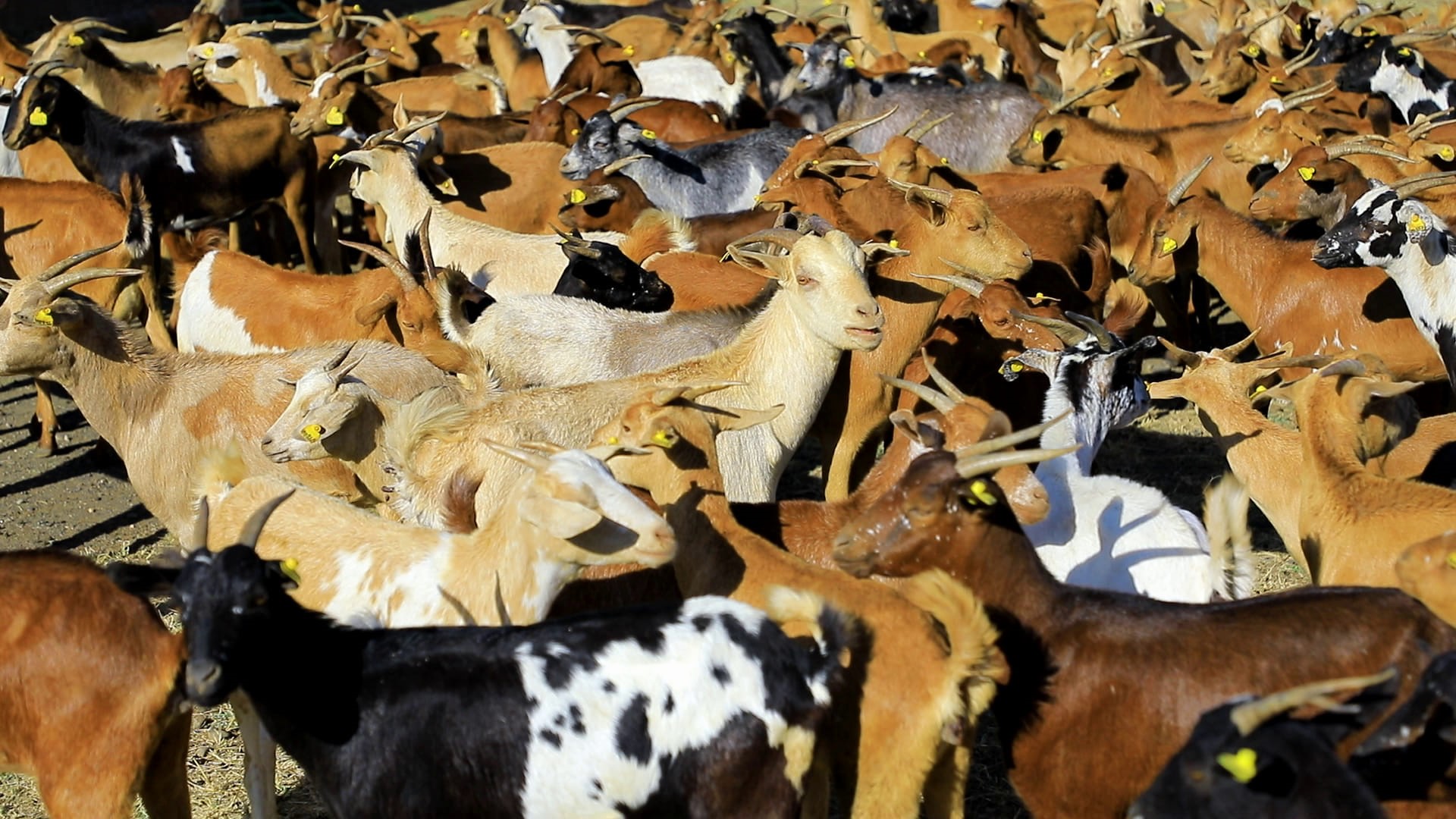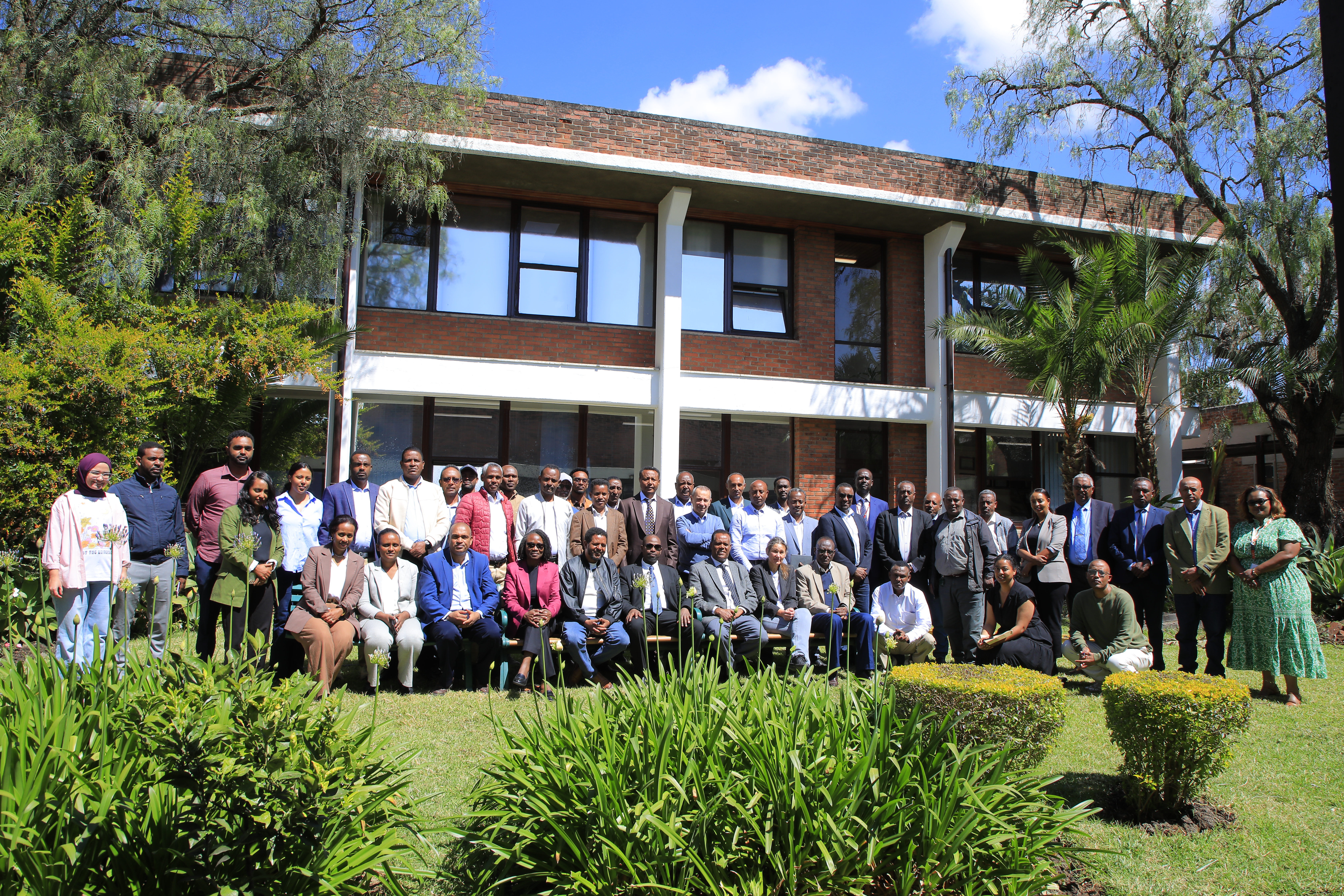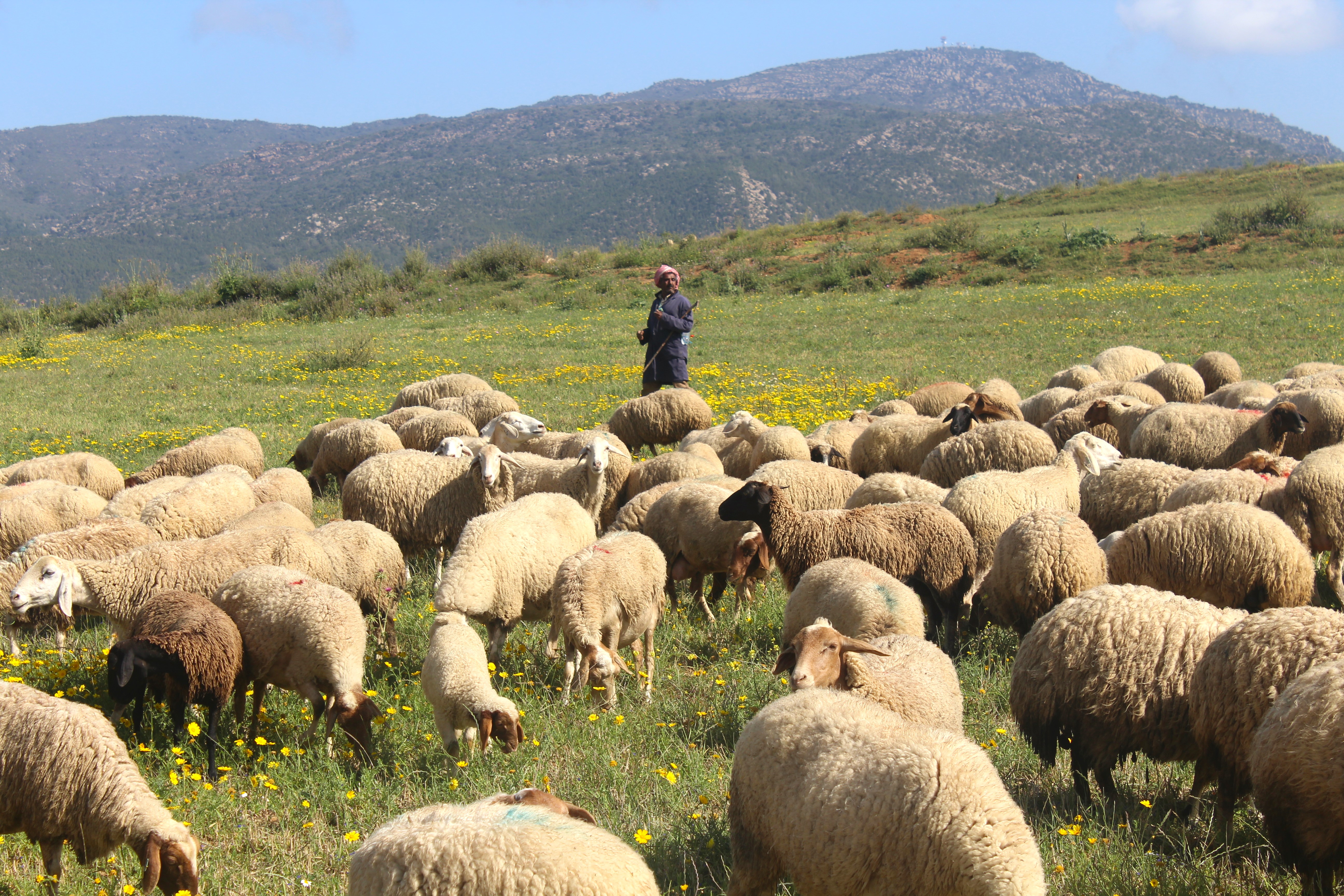A Woman’s Journey in Community-Based Breeding in Ethiopia
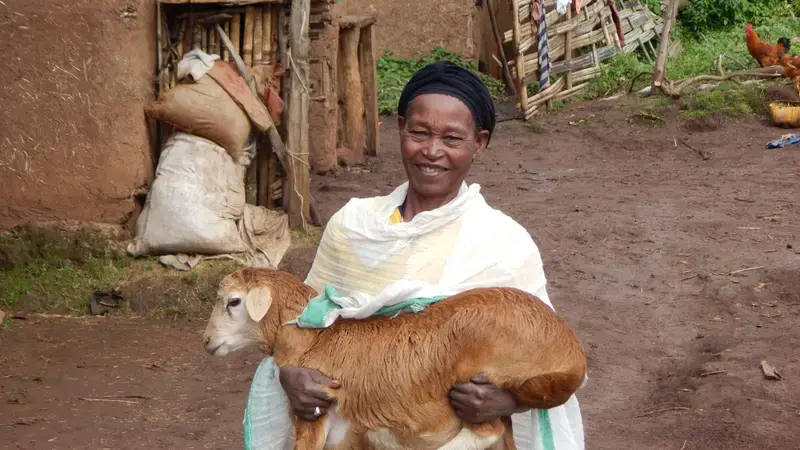
In a small village near Bonga, in Southwest Ethiopia, smallholder farmers rely on a mix of crop production and livestock to support their livelihoods. In this landscape, shaped by tradition, a woman in her sixties is leading change through ICARDA’s Community-Based Breeding Program (CBBP).
Ayelech, whose name means “she became victorious,” has become a symbol of perseverance and possibility for women in her community. Her journey is not only one of personal resilience but also a reflection of the impact that targeted, community-based interventions can have when paired with local knowledge and determination.
Years ago, Ayelech participated in a wheat improvement initiative. So, when she heard about CBBP, a collaborative initiative led by ICARDA, the Bonga Agricultural Research Centre, Ethiopia’s Ministry of Agriculture, and local communities, she was eager to participate. She joined in 2009, investing 20 birr (around US$0.15).
“That small investment changed everything,” she said.
Through CBBP, Ayelech accessed resilient, high-performing sheep breeds, known for twinning and yielding better meat quality. Her income grew steadily. She replaced her grass-thatched house with a sturdier home, acquired land in town, and began planning to build a veterinary clinic as a personal contribution to addressing animal health challenges in the community.
“Before CBBP, we valued sheep by number, not by quality,” she says.
“Breeding was random; we let any ram mate with any ewe. We accepted what came. But with training, we learned the value of selective breeding.”
CBBP also improved access to fair markets. Farmers like Ayelech now sell their animals based on weight, with clear pricing standards in place. Members of the cooperative not only receive prompt payments but also share the profits when animals are resold after fattening.
“We earn two to three times more than before,” she said. “And as members of the cooperative, we share in the profit and we own the process now, not the traders and middlemen.”
Since joining, Ayelech has sold nearly 30 sheep and used the income to support her son, Tadele, who is now in 11th grade.
“Before, I struggled to cover his school fees and expenses. Now, I can support him fully. He can finish school without worry.”
CBBP organizes farmers into small groups of five to collectively manage their livestock. Ayelech plays a leadership role in her cooperative, as a sire keeper, she manages improved breeding rams and provides mating services to non-member farmers for a small fee. This helps disseminate improved genetics beyond the cooperative and benefits the wider community.
“Our cooperative is expanding,” she says. “We sell to nearby towns like Arba Minch, and even to Addis Ababa. One day, we hope to export globally.”
“Bonga sheep are not just our pride, they can be all of Ethiopia’s pride as well,” she says. “Our youth can build a future here, escaping the risks of poverty or unemployment.”
In Bonga and other CBBP regions, ICARDA’s four-unit scaling model, breeding, production, finishing, and marketing, helps integrate farmers, women, and youth into the value chain. The approach combines scientific research with local ownership, creating pathways for inclusive rural transformation.
“I may be getting old,” Ayelech says, “but with every lamb born, every family sending their children to school, every new member in our cooperative, I still have reasons to dream.”

